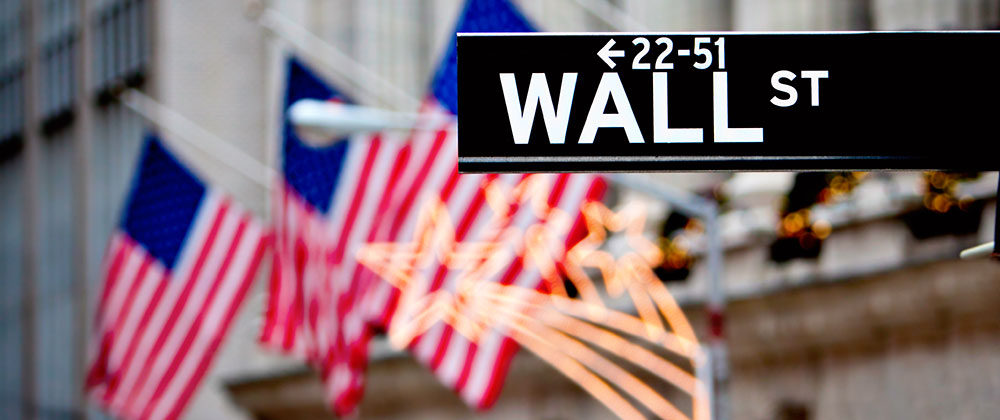Many years ago, I heard a story about Frank Nitti the gangster who along with Al Capone made millions from bootlegging, extortion and labor racketeering. As the story goes, Frank made a visit to Wall Street and when the day finished, he told a friend “now I feel like a nickel and dime piece of shit.”
My Grandpa Louie, came to America with fifty cents in his pocket and became a millionaire. He owned a lot of stock.
My Grandpa Bernie, came to America and became a professional newsboy. Eventually he owned many news stands and made a comfortable but not an extravagant living. He did not own stock. He was busy putting bread on our table. Living through the depression taught him not to put money in those “worthless pieces of paper.” As such, the Dow Jones Industrial Average struggled to maintain even 1000 points during the seventies.
In 1978, Ethan Lipsig and Ted Benna came up with the idea that a company could differ a portion of an employee’s wages that would be tax exempt until the age of 59 ½ years.
Bingo! This became the 401K or IRA retirement plan. Roughly 54 million Americans contribute to it, employers may add contributions to it, and some plans allow 100% contributions depending on your age.
With Ronald Reagan as President conservatives were looking at a time when social security would be eliminated or be greatly diminished. The 401K’s and the IRA’s might offer a reasonable alternative, especially when part of your income is tax exempt. If the employer matches your contribution that’s even better. The Wall Street Grand Casino looks like a good bet!
Disadvantages happen when you change jobs and there is no roll over option, or there’s not enough money in your retirement account and you cash out. This leaves you with horrible exit fees and penalties. What if, you want to retire during the dot com crash only to realize you lost 80% of your savings. How do you like it now?
You can’t give up! The program allows part of your income tax free status if you retire at the age of 59 ½ years. Most employers match part of your contribution. That said, I think it’s an opportunity you must take.
Take an active interest in your stock portfolio and learn as much as you can about the investments you are going to make. Remember you are not day trading so consider companies that you think will be around in thirty-five years. Companies like Amazon, Apple, Google (Alphabet) Tesla, Coca Cola, Microsoft, Walmart, JP Morgan Chase, General Motors, Disney, PayPal, Nike, Johnson and Johnson. I try to list stocks from different sectors of the market and with proven balance sheets based upon earnings.
As much as I have tried to eliminate risk, there are no guarantees. Nothing is guaranteed. It doesn’t matter what the investment is, real estate, stocks, diamonds, precious metals, Bitcoin. It can all be worthless under the right circumstances.
Become educated, read The Wall Street Journal, Barron’s or Investors Business Daily. You might be board initially, but the knowledge of companies and their products is a window into the future.
For those of you who want to day trade I think CNBC is your best daytime show. I start my day before the market opens by watching “Squawk on the Street” with Jim Cramer and David Faber. Cramer is a former hedge fund manager and broker for Goldman Sachs. At noon I watch Fast Money Halftime Report hosted by Scott Wapner. Josh Brown, Stephanie Link, Stephen Weiss, Pete Najarian, Joe Terranova and others makeup the guest list. I finish my day watching Jim Cramer’s Mad Money. I think these are good people because of their credentials, their knowledge base and their grasp of a market that is wrought with volatility, fear, misinformation, and risk. Bloomberg T.V. is another stock market show I should mention as some of my audience may want to compare one to the other. Watching these shows may be boring because financials are initially viewed as dull and dry. Give them a chance because nothing could be further from the truth and information along with understanding will be your key to success. Remember, the successful day trader is able to manage risk, assimilate information quickly and be able to pivot when necessary. Some people are just better at this than others.
When I was twelve years old my parents sent me to an eight-week summer camp. We had swimming, baseball, sailing, crafts, riflery, archery, canoeing, fishing, etc. etc. etc. Having never fired a weapon, by the end of the summer, I qualified for the highest ranking that the NRA gives. I can place rounds in a silver dollar a half a mile away. What good is that? Why couldn’t I be a good stock picker? O.K. I’m sorry for venting at my audience. The point is that you never know what you might have a talent for. I went to grade school with a kid who played concert violin at ten years of age. My bank teller has three kids a husband and a dog. Being hunkered down because of the pandemic, she opened a trading account and having no prior experience with the stock market she’s up over one thousand dollars in a short period of time. “Cha Ching” $$$. But! I must warn you that statistically 80% of the people who day trade lose money.
Occasionally, a cascade of events may occur that create a phenomenon. In our pandemic world everybody’s at home. People have lost jobs and our government has injected trillions of dollars into the economy. You can’t go to the bars. You can’t go to the restaurants. You can’t go to the malls. You can’t go on vacation. It’s hard to bet on sports because teams aren’t playing. In a nutshell, there’s nowhere for people to spend all this stimulus money and everybody’s board as hell.
Much of this empty time is filled with people going on the internet and visiting popular websites, of which Reddit is one of the most. Reddit has a message board and some people noticed that a group of stocks were greatly oversold, so they started buying them, and they posted comments encouraging other people to buy them as well. When that happened, it drove the prices of these stocks up. Way up! It’s like trying to sell a “shit sandwich” it’s not worth anything. But laws of supply and demand “always rule” so that if everyone starts buying “shit sandwiches” the “shit sandwich” you own is going through the roof.
The problems for the regulators are complex. Do they want to stop this kind of trading? If they do, we no longer have a free market. Should the market protect people from buying “shit”? Although some people will make big money along the way, at the end of the day, shit will never become sugar. One thing is certain. It adds more volatility to a market that is already a risky business. Caveat emptor buddies and good luck to you.




